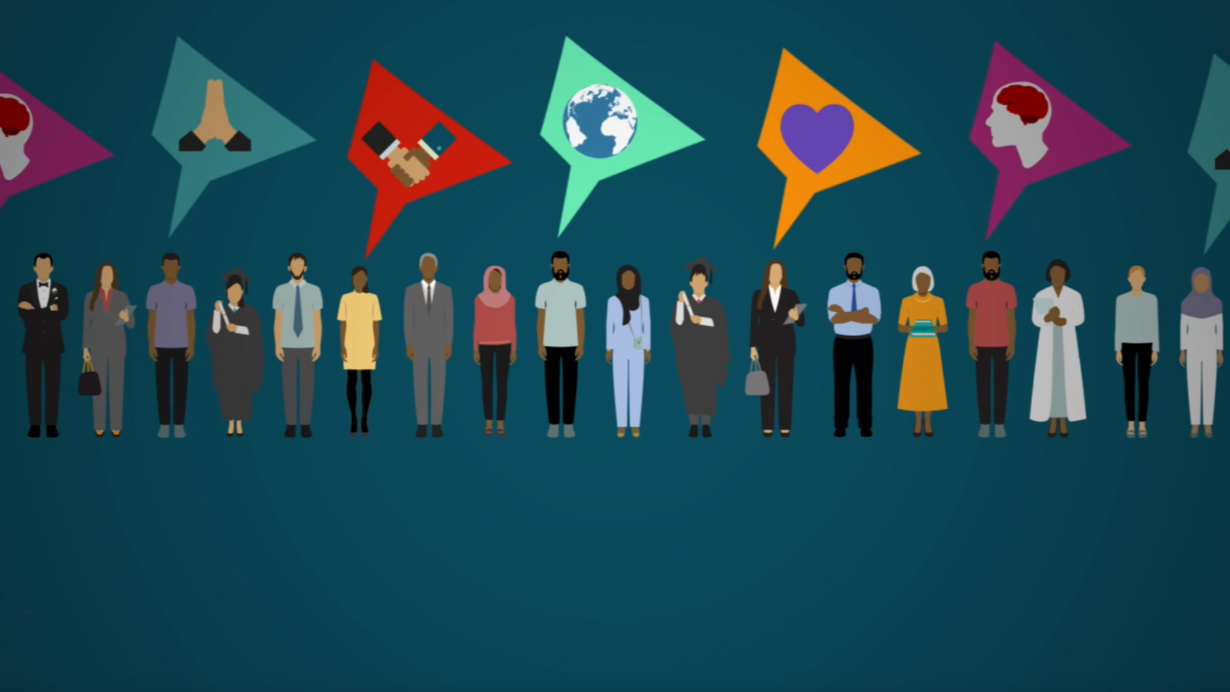
With the new wave of unrest sweeping the Middle East and North Africa, we are reminded that the opinion of ordinary citizens is important and should not be ignored.
The Arab Barometer recently finished field work for The Big BBC News Arabic Survey 2018/2019, the most extensive and wide-ranging survey ever attempted of its kind, to find out what Arab citizens think about the important issues affecting the Middle East and North Africa.
What can the shifting attitudes of ordinary citizens tell us about the future of MENA? I sat down with Amaney Jamal, Co-founder and Principal Investigator of the Arab Barometer to discuss the latest trends.
Aseel Alayli: There is a renewed unrest and instability across the region these days, what do you think is most interesting about conducting the Arab Barometer’s fifth wave at this particular time in MENA region? And, why does it matter?
Amaney Jamal: To be in the field and to be able to document public sentiment at a time where there is a lot of uncertainty and instability in the MENA region is a tremendous undertaking that we are very proud of.
It is especially important because in these moments of volatility, people don’t really know how citizens really feel about the changes going on, what are their true preferences versus what people are assuming their preferences might be. So, it is critical that we are able to go on the ground and capture public sentiment.
Furthermore, it is a period where we have increasing authoritarian retrenchment. A lot of policies that are emanating from regimes in the region don’t necessarily reflect what citizens want or what they desire, so to be able to also document the public opinion of the population is really important.
Alayli: What do you consider to be the highlight trends about Arab citizens based on the Arab Barometer’s survey findings across time and across countries?
Jamal: One thing that is very exciting with the fifth wave is that we have been now doing public opinion data for more than 10 years. We have also captured more questions, including being able to ask more sensitive questions about social, political and economic life in the region.
When we look at some of the trends across time, we see that there has been an incremental improvement in attitude towards gender equality, we have seen advancement among the population in terms of the ideals of political liberties and trying to live up to those ideals.
However, we see some trends that are concerning, including lessons learned from the Arab Spring. Citizens now fear that democracy might inherently cause more instability – we see this pattern certainly in Tunisia. Although people’s commitment to freedom and liberty is still very strong, I think people are questioning whether having a regime become more democratic is necessarily a good thing for their lives. People in the region are cautious about the potential effects of political liberalization.
One depressing finding is that even a larger segment of Arab youth say that would like to emigrate from Arab countries and ultimately leave the region. We see this trend on the uptick and it has increased dramatically since 2016. This finding shows that youth feel that their opportunities are limited in their homelands and that they feel there are limited opportunities for their lives. As they consider where they can achieve the most success, they conclude it is most likely to be living outside the region.
Alayli: Why is it important to know what ordinary citizens think about important issues affecting the Middle East and North Africa?
Jamal: Without knowing the needs and concerns of citizens, you cannot design effective policy. You cannot diagnose certain problems. You cannot make recommendations without truly understanding the views of ordinary people.
The other reason, why I believe it is very important to understand the public opinion of ordinary citizen in the Arab world, is that there is a lot of misconception and stereotypes about Arabs and Muslim population more generally. Our surveys reveal their true preferences. So, we can say with a high degree of certainty what those in this region believe, especially because a lot of those stereotypes shape and inform policies, and these policies often exacerbate misunderstandings, tensions, and other problems.
Third, think about the Arab spring – for a long time observers of the Middle East have focused solely on elites because they believed all policy emanates from the state or other elites. But, what the Arab spring showed us is that there is a layer of society underneath that also very much matter, and if we consistently ignore that segment as did the Arab regimes, these segments will ultimately protest and revolt to make their demands heard.
So, this is why this project is very dear to my heart. I feel that in this realm of authoritarianism and where we’ve seen reduced freedoms in many countries, the Arab Barometer still gives voice to the people in a way that allows us to understand what are the on-going grievances that remain. Critically, it provides us a scientific basis on which to communicate to key stakeholders the concerns of ordinary citizens.
Finally, there are about 350 million citizens in the region. The Arab Barometer is a small part of capturing what is going on in the personal daily lives of these citizens and trying to broadcast it to a larger audience. Giving voice to this population given the challenges involved is a tremendous accomplishment.
Search for #BBCARABICSURVEY to find out more.
—
Aseel Alayli is the Communications Manager at the Arab Barometer. To request an interview with an AB expert, please contact Aseel Alayli by email: aalayli@princeton.edu or +1 202-716-9068.




